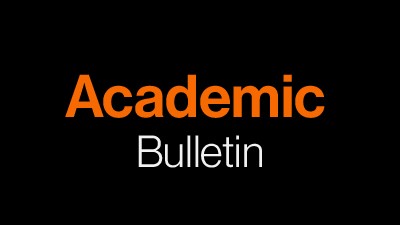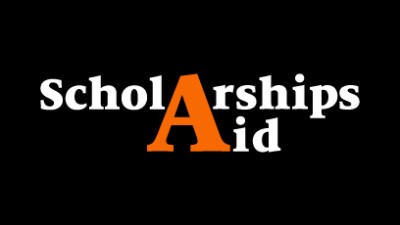Subplans
- RIT/
- RIT Kosovo/
- Academics/
- Concentrations
Sub-Plan Advise
Office of Academic Services
Phone: + 383 38 66 00 00
E-mail: academicaffairs@auk.org
Select a Sub-Plan Course to read content
At RIT Kosovo (A.U.K), a professional sub-plan is 21-24 credit hours in a thematic or discipline-based field of study. As part of the 60-credit hour professional core requirement, students must complete two sub-plans and an immersion. Students must complete 24 credit hours for the first sub-plan and 21 credit hours for the second sub-plan. Students must maintain a cumulative GPA both fields of studies GPAs and minor GPA above 2.0 to be eligible for graduation. Each sub-plan has a set of required courses and a number of electives. To declare your sub-plans please fill out the form, sign it, and submit it to the Academic Affairs Office.
The Economics and Statistics Concentration emphasizes the quantitative analytical approach to dealing with economic problems in both the public and private sectors, providing students with marketable skills and the intellectual foundation for career growth. Graduates are prepared for entry-level managerial and analytical positions in both industry and government and to pursue graduate studies in economics, business, and law. The economics curriculum develops communication, computational, and management skills in addition to economic reasoning and quantitative abilities. The program's required courses develop student's abilities to apply economic analysis to real-world problems. Liberal arts courses enhance oral and written communication skills. Business courses include accounting and finance. Quantitative analytical skills are developed by a course sequence that includes computer science, mathematics, and statistics.
TOTAL CREDITS 24
| Prerequisite Course(s): | Credits | |
| ECON–101 | Principles of Microeconomics | 3 |
| Required Course(s): | ||
| ECON–201 | Principles of Macroeconomics | 3 |
| ECON–403 | Econometrics I | 3 |
Elective Courses: |
||
| ECON–401 | Intermediate Microeconomic Theory | 3 |
| ECON–402 | Intermediate Macroeconomic Theory | 3 |
| ECON–405 | International Trade and Finance | 3 |
| ECON–421 | Natural Resource Economics | 3 |
| ECON–422 | Benefit-Cost Analysis | 3 |
| ECON–430 | Managerial Economics | 3 |
| ECON–431 | Monetary Analysis and Policy | 3 |
| ECON–441 | Labor Economics | 3 |
| ECON–444 | Public Finance | 3 |
| ECON–448 | Development Economics | 3 |
| ECON–520 | Environmental Economics | 3 |
Note: Students must take at least three upper-level courses (300-level of higher)
Energy Policy Studies offers students the opportunity to enhance their knowledge in energy, environment, and natural resource management. Courses in the Energy Policy Studies concentration will offer a thorough understanding of the energy industry fundamentals; structure and operation of international energy systems; energy policy markets, regulations, policies, strategies, technologies; and social elements involved in delivering energy solutions in Kosovo, the region and the world. Courses are intended for students interested in to pursue their careers in energy sector (private and public), development, social responsibility, and natural resource management. The designated courses have been strategically selected to complement other professional concentrations. Students will be exposed to ideas and concepts wide-ranging and uniformly balanced among traditional and emerging energy alternatives in an academically challenging and innovative solution-focused setting.
TOTAL CREDITS 24
| Prerequisite Course(s): | Credits | |
| ECON-101 | Principles of Microeconomics | 3 |
| Required Course(s): | ||
| PUBL–101 | Foundations of Public Policy | 3 |
| PUBL–530 | Energy Policy | 3 |
| Elective Courses: | ||
| PUBL–210 | Intro to Qualitative Analysis | 3 |
| SOIS-211 | Exploring Innovation | 3 |
| PUBL-330 | Energy and Environment | 3 |
| SOIS-335 | Global Forces and Trends | 3 |
| SOIS-442 | The Practice of Innovation and Invention | 3 |
| STSO-421 | Environmental Policy | 3 |
| ECON-421 | Natural Resource Economics | 3 |
| ECON-422 | Benefit-Cost Analysis | 3 |
| ECON-520 | Environmental Economics | 3 |
| PUBL-531 | Climate Change: Science Technology and Policy | 3 |
Note: Students must take at least three upper-level courses(300-level or higher).
The Digital Arts and New Media Studies Sub-plan combines contemporary visual communication and multimedia theory and tools to prepare students for effective communications across a wide variety of media. The course sequencing prepares students with practical and theoretical aspects of graphic design, web development, print design and multimedia production, communication techniques and digital asset management. A student completing the Digital Arts and New Media Studies Sub-plan is prepared with the theoretical framework and hands-on technical skills needed to organize, design and communicate ideas and information in the 21st century global market and to meet the projected national market needs in the greater Kosovo region. It is also an excellent compendium to RIT Kosovo (A.U.K)'s other concentration offerings and provides a useful skill set for private and family business operations. The student should either take ISTE-240 or ISTE-260.
TOTAL CREDITS 24
| Required Course(s): | Credits | |
| COMM–223 | Digital Design in Communication | 3 |
| Elective Courses: | ||
| GRDE 106 | Graphic Design Studio I | 3 |
| SOFA 121 | Animation I | 3 |
| FDNT 131 | 3D Design I | 3 |
| GRDE 201 | Typography I | 3 |
| IDEA 251 | Visual Storytelling for the Graphics Novel | 3 |
| ISTE 260 | Designing the User Experience | 3 |
| TCOM 365 | Video Production | 3 |
| IDEA 372 | Web Fundamentals for Artists | 3 |
| TCOM 380 | Design for Print and Web | 3 |
| TCOM 381 | Photo Imaging I | 3 |
| TCOM 382 | Photo Imaging II | 3 |
| ENGL 410 | Film Studies | 3 |
| ANTH 430 | Visual Anthropology | 3 |
Note: Students must take at least three upper-level courses (300-level or higher).
The Management & Entrepreneurship Concentration prepares students for management and specialist careers in a variety of enterprises and organizations. Students develop the skills and concepts needed to become effective leaders, ethical decision makers, and creative innovators. The management curriculum provides both depth and flexibility in its offerings so that students may maximize their educational experience.
TOTAL CREDITS 24
| Required Course(s): | Credits | |
| ACCT–110 | Financial Accounting | 3 |
| ACCT–210 | Management Accounting | 3 |
| PROF–206 | Managing the Workforce | 3 |
| Elective Courses: | ||
| SOIS–211 | Exploring Innovation | 3 |
| PROF–221 | New Venture Development | 3 |
| PROF–261 | Marketing Principles | 3 |
| PROF–263 | Advertising Principles | 3 |
| PROF–324 | Intro to Logistics and Transportation | 3 |
| SOIS–335 | Global Forces and Trends | 3 |
| SOIS–411 | The Practice of Innovation and Invention | 3 |
| SOIS-442 | Learning Organization | 3 |
| PROF–510 | Project Management | 3 |
| Elective Courses offered in Summer: | ||
| SOIS–432 | Managing Organizational Change | 3 |
Note: Students must take at least three upper-level courses (300-level or higher).
Peace and Conflict Studies gives students the tools to analyze the socio-economic, psychological and political dynamics of violent conflict and its transformation. Students will study conflict dynamics and group polarizations. They will analyze the genesis and transformation of violent conflicts, as well as post-conflict challenges in state-building, social integration and development. Students will explore identity conflicts, resource conflicts and genocides. Students will study the relationships between individual and group identity and labelling, the economic bases of conflict transformation, ethical issues underlying decisions of international actors to intervene or not intervene in conflicts, and practical steps towards good governance at the end of armed conflict. The teaching faculty includes academics from political science, psychology, sociology, anthropology and economics, as well as policy makers with direct experience in crises and peace building in the Balkans, the Middle East, Africa and Asia.
TOTAL CREDITS 24
| Required Course(s): | Credits | |
| POLS–120 | Intro to International Relations | 3 |
| Elective Courses: | ||
| POLS–110 | American Politics | 3 |
| POLS–200 | Law and Society | 3 |
| POLS–205 | Ethics in International Politics | 3 |
| POLS-210 | Comparative Politics | 3 |
| POLS–220 | Global Political Economy | 3 |
| POLS–280 | Artificial Intelligence and the Political Good | 3 |
| POLS–320 | American Foreign Policy | 3 |
| POLS–325 | International Law and Organizations | 3 |
| POLS–333 | Human Rights in Global Perspectives | 3 |
| POLS–330 | The Rhetoric of Terrorism | 3 |
| POLS–335 | Politics in Developing Countries | 3 |
| POLS–345 | Politics and Public Policy | 3 |
| POLS–360 | International Political Thought | 3 |
| POLS–370 | Cyberwar, Robots and Future Conflict | 3 |
| POLS–425 | Constitutional Law | 3 |
| POLS–435 | American Political Thought | 3 |
| SOIS– 440 | War and the State | 3 |
| POLS-445 | Terrorism and Political Violence | 3 |
| POLS-525 | ST: Balkan Studies | 3 |
| POLS-525 | ST: Faith and Globalization | 3 |
| POLS-525 | Special Topic | 3 |
| POLS-542 | War, Diplomacy & State Building | 3 |
| Elective Courses offered in summer | ||
| POLS–285 | Environmental Ethics and Political Ecology | 3 |
| POLS–360 | International Political Thought | 3 |
| POLS–541 | Peace Keeping & Conflict Transformation | 3 |
Note: Students must take at least three upper-level courses (300-level or higher).
Note: Students can only take up to two Special Topic (POLS 525) courses.
The Public Policy & Governance Concentration provides students with a clear understanding of public policy, the policy process, and policy analysis. Students are introduced to the concept of public policy, the policy making process, and methodologies associated with policy analysis. The roles of stakeholders and interest groups are discussed in the context of contemporary cases in various policy arenas.
TOTAL CREDITS 24
| Required Course(s): | Credits | |
| PUBL–101 | Foundations of Public Policy | 3 |
| Elective Courses: | ||
| PUBL–201 | Ethics, Values & Public Policy | 3 |
| STSO–201 | Science & Technology Policy | 3 |
| POLS–210 | Comparative Politics | 3 |
| PUBL–210 | Intro to Qualitative Analysis | 3 |
| PUBL–330 | Energy and Environment | 3 |
| SOIS–335 | Global Forces and Trends | 3 |
| POLS –345 | Politics and Public Policy | 3 |
| STSO–421 | Environmental Policy | 3 |
| PUBL–520 | Information and Communication Policy | 3 |
| PUBL–530 | Energy Policy | 3 |
| PUBL–531 | Climate Change: Science, Technology and Policy | 3 |
Note: Students must take at least three upper-level courses (300-level or higher).
Security Studies provides students the opportunity to learn about military officer training and its mission to develop leaders for tomorrow’s Armed Forces. Courses promote leadership and management, skills that can be employed in any career field, along with courses analyzing the military’s role in national security affairs and foreign policy.
TOTAL CREDITS 24
| Prerequisite Course(s): | Credits | |
| POLS-120 | Introduction to International Relations | 3 |
| Required Course(s): | ||
| POLS-370 | Cyberwars, Robots and Future Conflict | 3 |
| Elective Courses: | ||
| POLS–210 | Comparative Politics | 3 |
| POLS-280 | Artificial Intelligence and the Political Good | 3 |
| POLS–330 | Human Rights in Global Perspectives | 3 |
| POLS–35 | Global Forces and Trends | 3 |
| POLS-333 | The Rhetoric of Terrorism | 3 |
| POLS–345 | Politics and Public Policy | 3 |
| POLS–440 | War and State | 3 |
| SOIS–445 | Terrorism and Political Violence | 3 |
| POLS–542 | War, Diplomacy and State Building | 3 |
| POLS-525 | ST: Balkan Studies | 3 |
| POLS-525 | ST: Faith and Globalization | 3 |
| POLS-525 | Special topic | 3 |
| Elective Courses offered in Summer | ||
| POLS-541 | Peace Keeping and Conflict Transformation | 3 |
Note: Students must take at least three upper-level courses (300-level or higher).
Note: Students can only take up to two Special Topic (POLS 525) courses.
The Web & Mobile Computing (IT) Concentration emphasizes the basics of both applied informatics and web development. The web has become the ubiquitous communication medium. Therefore, knowledge of how the web works and how to effectively develop dynamic websites has value to students enrolled in many concentration areas and with different career goals. Upon completing this concentration, students will have the broad range of skills and understanding necessary to design and build a basic, but complete, web presence in their selected area of interest. Students will also gain an understanding of how to use multimedia and create systems that allow the subject matter expert to leverage available information. The courses in this concentration are applied and focus on hands-on learning, including projects that will be beneficial outside of the university setting.
TOTAL CREDITS 24
| Required Course(s): | Credits | |
| ISTE–140 | Web and Mobile I | 3 |
| ISTE-240 | Web and Mobile II | 3 |
| Elective Courses: | ||
| ISTE–200 | Java for Programmers | 4 |
| ISTE–230 | Introduction to Database and Data Modeling | 4 |
| ISTE–252 | Foundation of Mobile Design | 3 |
| ISTE–262 | Foundation of Human Centered Computing | 3 |
| ISTE–260 | Designing the User Experience | 3 |
| ISTE–340 | Client Programming | 3 |
Note: Students must take at least one upper-level course (300-level or higher).
The Individualized Study concentration aims to accommodate the needs of modern day students and/or the working adult. This flexible, individualized program of professional study gives the students the opportunity to combine up to four concentrations for their degree. Each concentration constitutes of coherent sets of discipline related courses and appropriate electives for the professional component, in addition to the core of mathematics, science, humanities, and social sciences component of the degree.
TOTAL CREDITS 3X15
Related: Sub-Plans Minors Immersions









